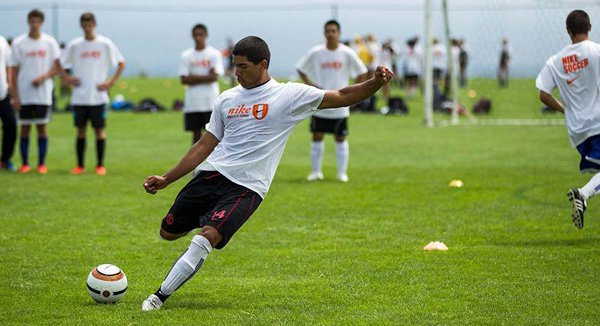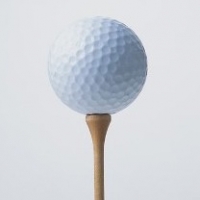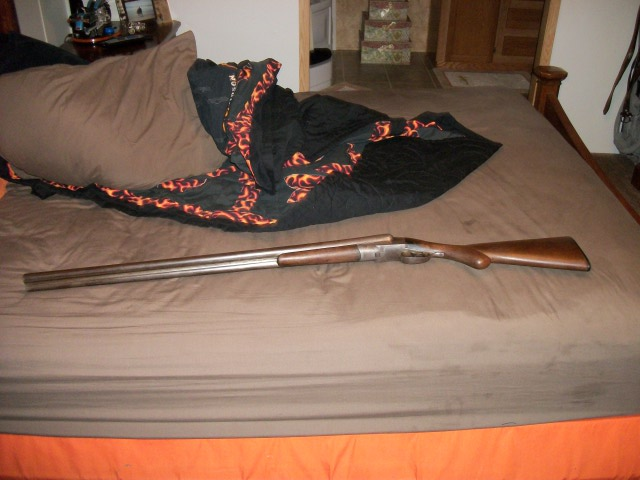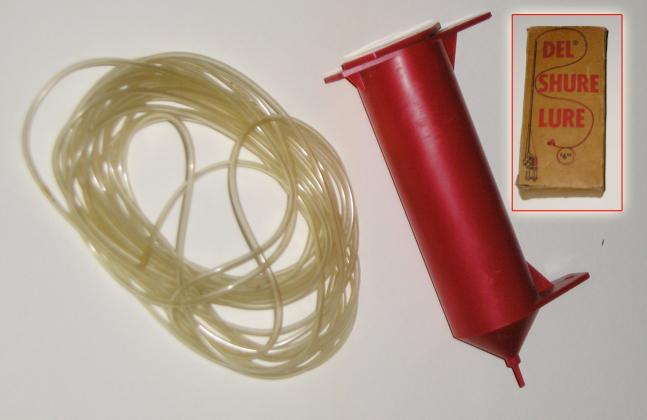
In 1930, Uruguay, the small South American nation, successfully hosted and won the 1st ever World Cup in football. To commemorate this event 50 years later, they arranged the ‘Mundialito'; which in Spanish means the ‘little world cup'. The tournament started on 30th December, and finished in early January. For this event, the hosts invited the five other teams who had previous experience of winning the WC, Brazil, Argentina, Italy, West Germany and England. While, England rejected the invitation citing the busy holiday schedule in their local league as the reason, the others gladly accepted. England was replaced by Holland, who had narrowly missed the glory twice, in 74 and 78. England's absence had no negative effect on the quality of football; despite the successes of teams like Liverpool and Nottingham Forest in European Club football, the England national team struggled badly throughout the 70's, and things only improved marginally during the 80's.
The tournament eventually proved to be a grand success, with some of the teams playing breathtaking attacking football. There were plenty of goalmouth actions and there were no 0-0 draws. Some key factors contributed to the success of this event. The most important of these was the pressure factor. The WC football, is without doubt the biggest football event of the globe; but at times this event can become just too big for many teams. Specially, in the final stages of a WC, the players, managers and fans of the remaining teams start to feel too much pressure; and this pressure often lead to them taking the cautious approach; taking absolutely no risk in the big matches. In 1990 West Germany, won the WC in Italy, but after scoring 9 goals in their opening 2 matches (against Yugoslavia and lowly UAE), they managed only 6 more goals in their next 5 games. Brazil won in USA 1994, despite scoring only one goal in 4 hours of football in the SF and in the final. Overall, the 1990 and 1994 finals together yielded just one goal, that too from the penalty spot. The last 3 finals have produced only 5 goals. There is just too much tension for the teams, in the final stages of a WC.
No such pressure was evident in Uruguay. The tournament was unofficial; but still the high reputations of the teams, and the bitter rivalry among them, meant that the matches were given greater significance than the usual friendly matches. The timing of the event also contributed to the excitement; the tournament started at a time when the major Latin cities were completing their final preparations to welcome the new year. The stadiums were basking with sunshine and almost everybody, the players, the managers and fans seemed to be in a relaxed mood. And finally, the simple structure of the event helped. The six teams were divided in to two groups of two, with the two champions meeting in the final. There were 7 games, (and a maximum of three for any team); and there were no questions of players getting burned out.
The tournament started with a 2-0 victory for the hosts against Holland in a group A encounter. Winger V. Ramos and striker Victorino scored the goals. Victorino got his name in the score-sheet again, in the next match (against Italy); as Uruguay booked their place in the final with another 2-0 success. The final game of the group became meaningless, and the two European giants played out a 1-1 draw. In the Uruguay side, Victorino was a cool finisher, while Ramos, an old fashioned winger of the Garrincha mould (not quite of the same class though); was quick and exciting. The defense was marshaled by tall and strong D'Lyon; and overall the home side looked well prepared for the event. The home side's job was made easier by the fact that both Holland and Italy sent young, experimental teams for the event. For the Dutch, their golden era of the 70's was over; and we saw a group of young players trying to make their mark here. Jan Peters, who is still remembered for scoring couple of great goals at Wembley (in an international friendly) in 1977, scored the only goal for the Dutch here. Young players like Martin Jol (who obviously was much slimmer in those days) were given their chance, but failed to impress. Italy's problems mainly arose from the suspension of some key players following a match fixing scandal. At least their young player looked more competent; and three young players, Cabrini, Conti and Ancelotti deserve a mention here.
Throughout the first half of the 80's, Cabrini of Juventus was regarded by many as the finest left full back in world football; he represented Italy in 3 WCs and performed admirably at both ends of the field. In Spain 1982, he scored Italy's 2nd goal against Argentina; and then his cross provided the opportunity for Rossi, to score his first goal against Brazil. Sadly, in the final against FRG, Cabrini got his name in the record books for the wrong reason. He is still the only player to miss a penalty in the WC final match. Like Cabrini, Conti, from AS Roma, had an outstanding time at Spain, while Rossi was the finisher, he was the provider. Naturally left footed, like so many other playmakers, he was given a free role, and used it brilliantly. Ancelotti scored the only goal for Italy here, and he later represented Italy in the 1990 WC; but most of his successes came in club level football. He won the Serie A with AS Roma in 1983, and after moving onto AC Milan became a part of the famous side that dominated the European football in the late 80's. Yet, playing as a defensive midfielder, he seldom had the chance to grab the headlines. At Roma, he was overshadowed by Conti, Falcao and Cerezo, while at Milan, Gullit, Van Basten, Donadoni, Maldini and the others dominated; it was only after moving into the manager's chair that Ancelotti had come in to the limelight.
So, in group A, Uruguay was far superior to the other teams, and they qualified for the final with maximum points. The situation in group B was lot more complex. On the new year's day of 1981, Argentina, the reigning world champions took on West Germany, the European champions. This was my first chance to see Maradona, the wonder boy. But, here heavily marked by Hans Pieter Briegel, his movements became restricted. Kempes, the hero of 1978, also looked a bit out of touch. For Germany Schuster (more about him later) controlled the midfield, and Hrubestch, the tall Hamburg SV striker gave them a well deserved lead before half time. In fact, for the Germans everything went according to plan, until the 85th minute; then a terrible terrible mistake by their full back Kaltz led to an own goal; and with just couple of minutes left Ramon Diaz, Maradona's striking partner with the Argentina youth team, scored the winner.
The next match in the group, a 1-1 draw between Brazil and Argentina, is without doubt the greatest football match I have ever seen. The Brazil was without Zico for this event, but, in the country of Pele and Rivelino, there is never any dearth of footballing talent. Here, the skipper Socrates reigned supreme in the midfield, and along with Cerezo control the pace of the match. Up front, the winger Sergio was quick and clever. In the absence of Zico, Junior, the left full back was the free kick specialist. Most importantly, in true Brazilian tradition, the Tele Santana's team played attractive attacking football, caring little about the defense. Unlike the German's they didn't bother to mark Maradona closely; and this enabled the little man to give me first glimpses of his famous defense breaking runs from the midfield, holding the ball in his left foot, dribbling past one defender after another. In fact, one such run from him gave Argentina the first half lead. His shot was deflected, but the goal was credited to him.
Brazil were level early in the 2nd half, thanks to a spectacular strike form their right full back; Edevaldo. Brazil had a corner from the left flank, and the Argentina defense only partially cleared the danger. The ball went to Edevlado, near the right side corner flag. Despite the acuteness of the angel; he released a fierce right-footer that crushed in to the Argentina net; in fact the ball rebounded of the net in such a manner that most TV viewers, including me, though that he had actually hit the cross bar. It was his celebration and the replays that convinced us that he had actually scored. The rest of the match saw breathtaking, fast attacking football from both the sides. The Brazil midfield was full of creative ideas, while Maradona remained a constant threat to the Brazil defense. There were plenty of goalmouth actions, but no more goals. Sadly, at the end of the 90 minutes, the players of both the sides got involved in an ugly brawl. Perhaps, this match provided me with a complete course on ‘Introduction to Latin Football'.
Brazil went in to their final match against Germany; knowing fully well what they had to do to reach the final. A 2-0 victory was preferred, although a 3-2 or even a 4-3 win would have been enough. So, right from the beginning, they looked hungry; but yet the strikers failed to impress. And then after the half time break Alloffs scored against the run of play. The Brazil supporters were shocked; while the Uruguayan fans remained neutral (after all it was almost impossible for them to choose between Brazil and Argentina); Brazil players however, responded in most brilliant fashion, scoring 4 goals in less than half an hour. This wasn't against any mid strength central European team, trying to make their mark on world football, it was against Germany, one of the greatest footballing nations. Left back Junior started it, bending his free kick past the German wall, and then the outstretched hands of the German keeper Schumacher. Cerezo's persistent works was rewarded with his goal just minutes later. Then Socrates dribbled past the German goalkeeper to set up Serginho for the 3rd; and finally, Sergio accelerated perfectly to leave the German defense napping and grab the 4th for his team. Brazil was in the final, and had a chance to take revenge (albeit in a slightly smaller scale) for the humiliation at Maracana, 30 years earlier.
For the Germans, this was a rude awakening; they had no answer to the Latino brilliance, and they went home dejected. Still, one player from the side deserves a mention here. Just 21, Bend Schuster had already emerged as the supreme general of the German midfield; he had already impressed during the Euro 1980, and Barcelona, still unable to get the services of Maradona, signed him from FC Koln. For more than a decade he became a prime figure in La Liga; playing for Barca, Real and Atletico. Yet, overall he just won 22 caps for Germany. The main reason was that he was constantly at odds with Bayern pair of Rummenigge and Breitner; even his relationship with the manager Jupp Darwell wasn't very cordial. When Beckenbauer took over in the mid 80's; he tried to persuade Schuster back, but only in vain. Germany under the Kaiser played methodical, planned football; but failed to show the flair that Schuster might have provided.
Back to Uruguay; after couple of brilliant displays against Argentina and Germany; the Brazil team flopped in the big final, losing 2-1. The only exception was the skipper Socrates; he looked full of energy, earned a penalty, which he himself duly converted to level the scores. After Uruguay scored late; I briefly saw Brazil left winger Eder come from the subs bench. I saw him more vividly during the Espana 1982; there he scored a memorable goal against USSR. Even more astonishing was his effort against Argentina; early in the game, Brazil had a free kick some 30 yards from goal. A fierce kick from Eder beat the GK Fillol; hit the cross bar and possibly crossed the goal-line. The goal however was credited to Zico who made things absolutely sure by putting the ball in to the net. Eder remained in top form after the world cup, but was not included in the 1986 team, mainly for disciplinary reasons. His behavior in the field with the opposition and his teammates wasn't always exemplary. Brilliant but inconsistent, superbly talented; yet extremely hot tempered, Eder perhaps represented the Brazil football at the time almost perfectly.
As for Uruguay, the script was perfectly written; even the 2-1 score-line made the old timers a bit nostalgic. The fact that Uruguay coach Roque Maspoli, was the GK of the 1950 team, added more color to the story. Here also, the winning goal came late; with Victorino scoring in the 80th minute; and while he didn't become a legend like Ghiggia, he ended up being the highest goal scorer in the event; with 3 goals.
Epilogue: Somewhat unexpectedly both Uruguay and Holland failed to qualify for Spain, 1982. The others, however made it, and I had the chance to look at some of my favorite players again. The Italy team was strengthened by the returns of GK Dino Zoff and striker Rossi, and they duly won the cup. In the absence of Schuster, Germany almost totally depended on Rummenigge to reach the final. Diego Maradona's 1st WC became a nightmare for both the player and his team. Argentina lost 3 of the 5 matches they played. Socrates again led the Brazil side superbly. Less impressive were Cerezo and Edevaldo. With Socrates, Zico and Falcao in the midfield, Cerezo was given the defensive midfielders job; a job that never suited his attacking instincts. His bad mistake presented Rossi with his 2nd goal for Italy. Edevaldo went in to the Spain WC, as the 2nd choice (behind Leandro) right full back. His only notable contribution in the event was fouling Maradona late in the Brazil-Argentina match. Maradona retaliated with a kick at Edevaldo, and was promptly sent off. Overall, the brilliant attacking game of the Brazil team, won the hearts of the millions worldwide; yet they returned home empty handed.


Vintage Tackle Contest: Del Shure Lure

Copyright © www.mycheapnfljerseys.com Outdoor sports All Rights Reserved